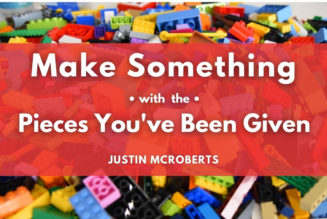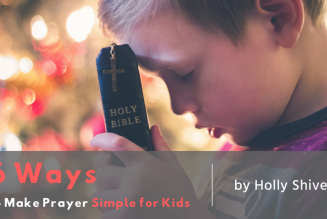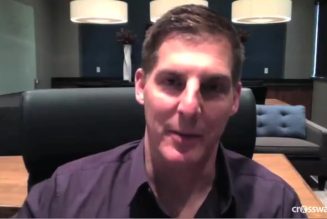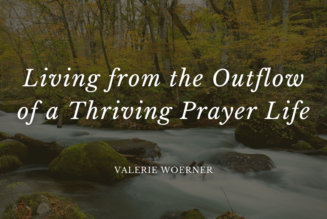
Imagine paradise. Really. Take a moment imagine you are in paradise. What do you see? Maybe you picture a remote tropical island with water clearer than a swimming pool. You can almost feel your toes sinking into the white sands warmed by the sun. Or maybe you imagine yourself reclining in an over-sized Adirondack chair. The fire in the stone hearth provides the perfect respite from the crisp mountain air as you curl up to spend the day reading a book.
Though pictures of paradise will vary from one person to another, one thing seems to remain constant in them all: just about everyone agrees that ‘paradise = freedom from work.’ Everybody but God, that is.
In the beginning, God created work. It’s true. One of the first things we learn about how God made us is that he designed us for work. “Be fruitful and multiply; fill the earth and subdue it” (Gen. 1:28), God said. And just so we didn’t miss his point, the author tells us, “The Lord God took the man and put him in the Garden of Eden to work it and take care of it” (Gen. 2:15).
That’s not just some past-tense paradise, either. The biblical prophets also describe the future paradise being prepared for God’s people as a time when people turn their weapons of war into farming tools (Isa. 2:1-5; Micah 4:1-5). So, the Bible begins with humans working in paradise and it ends with humans working in paradise!
Work Is Not a Curse
In light of all this it should be obvious that work is not a curse. Instead, God shows us that work is part of his perfect design for our lives.
In fact, work is as much of a basic human need as food, beauty, rest, and friendship. Sociological studies show that without meaningful work, people suffer emotionally, physically, and spiritually. The loss of work is harmful to us because God specifically designed us for work.
Our work helps us discover part of what it means to be a human made in the image of God. It also helps us understand our own abilities and gifts. Moreover, work is one of the main ways that God uses us to bless other people. He designed the world so that our work benefits others. If you think of all the things you own and use—from toothpaste to highways to clothing stores—you will see that you have been immensely blessed through the work of countless people. Work is such a wonderful thing!
Why—Despite All This—We Still Don’t Like Work
If we are honest, though, we can admit that what God says about work feels so different from our experience. God says that work is good, but work doesn’t always feel good.
In fact, polls show that seven out of ten people “hate” or “strongly dislike” their jobs. Why is that? Why do so many of us despise what God created us to do, and which God uses to bless the world?
You probably already know the answer. The problem is not with work, but with us. We are sinful, which is not just a description of our guilt before God. To say that we are sinful also means that our thoughts, our feelings, and our actions are backwards, upside-down, twisted, polluted, and every other word we might use to say that our hearts and minds and souls and bodies are just plain broken.
That means what God intends to be a blessing—such as work—can feellike a curse to us. In short, sin is what makes work hard. That’s why it was only after they had sinned that Adam and Eve were told about the new hardships they would experience in God’s world (Gen. 3:17-19).
It seems obvious to say so, but this means we shouldn’t hate work. Instead we should hate our sin. Each time that our jobs seem stressful, difficult, taxing, boring, un-fun, hard, etc., we ought to remember why this is the case. It’s because of our sin. It is because we are limited, and God is not. It is because we need to be changed so that what feels like a curse is actually experienced as a blessing.
Your Job and the Gospel
The gospel reminds that one day the forgiving grace of God will also renew our minds and hearts and bodies with the same power that raised Jesus from the dead (Rom. 8:11). We will be “like him” (1 John 3:2), which means a great deal of change is headed our way, including how we approach the work that God has designed us to do.
In the meantime, since we know that work is part of God’s plans for paradise, we ought to approach work as the good gift that it is. We should thank God for the work he has given us, for he uses our work to help us provide for our families and bless others with whatever service it provides. We also should pray that God would help us to see our sin through the work he has given us, asking him to use our work to teach us to depend on him even more.
Finally, we should remember that no honest job is too hard, too insignificant, or too boring if done for the glory of the Lord. That is why Paul exhorts us, “Whatever you do, work at it with all your heart, as working for the Lord, not for men, since you know that you will receive an inheritance from the Lord as a reward. It is the Lord Christ you are serving” (Col. 3:23-24).
Doug Ponder is one of the founding pastors of Remnant Church in Richmond, VA, where he serves in many of the church’s teaching ministries. He has contributed to several published works and is the author of Rethink Marriage & Family. His interests include the intersection of theology, ethics, and the Christian life. Follow him on Twitter @dougponder.










